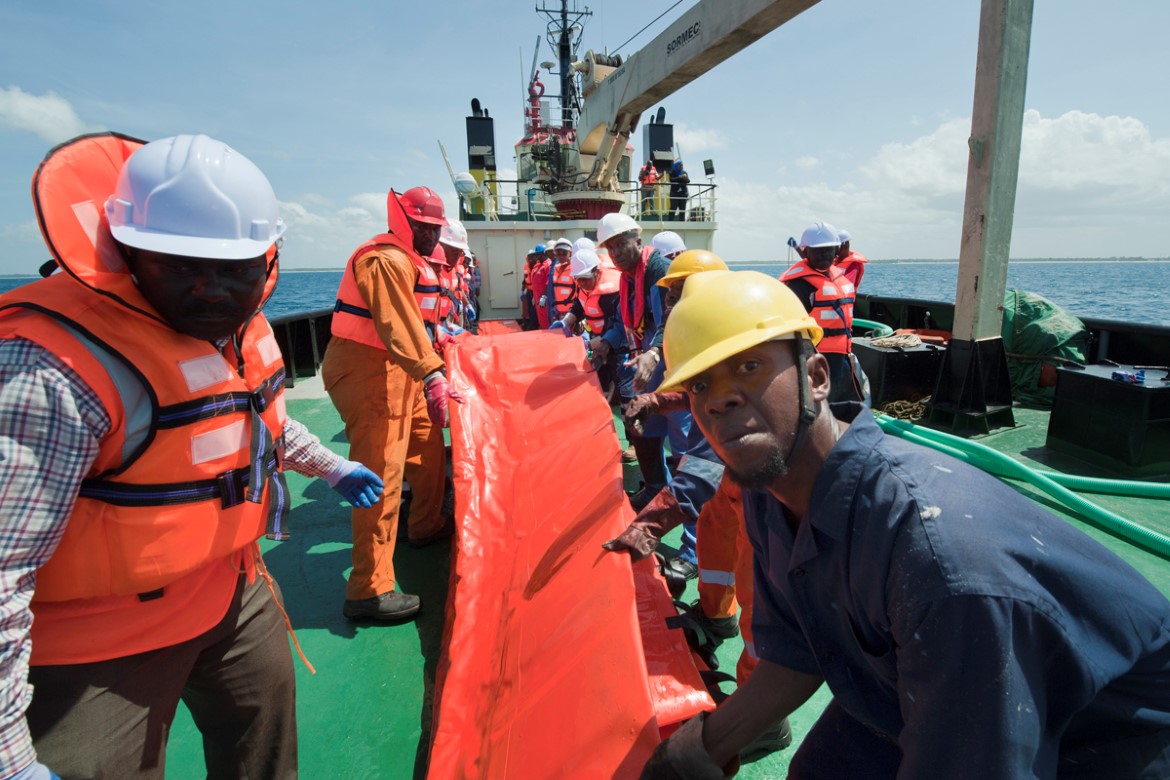
Ten years of Oil for Development
The aim of the Oil for Development (OfD) Programme is to reduce poverty by promoting responsible management of petroleum resources.
Reinforced efforts
The OfD Programme was launched by the Norwegian government in September 2005. At the time, it was said that ‘the Government will reinforce its assistance to developing countries that seek Norwegian competence and experience in the petroleum sector. This effort is linked to transparency and measures to combat corruption.’
Ten years later, the time has come to review the status.
‘A series of evaluations and reviews confirm the positive results achieved by OfD’, said Petter Stigset, head of the OfD secretariat in Norad, before adding that there will always be room for improvement, and that this is a key part of the ongoing work of the programme.
Examples of achievements may be found both with regard to legislation and institutional framework, capacity development and the strengthening of accountability mechanisms. For example:
With long-term support from Norway, Nicaragua has developed a competent petroleum administration. This collaboration is an example of the results a long-term partnership can yield. Important results from the collaboration have been new petroleum regulations, collection and analysis of petroleum data from the 1960s and 1970s and routines for Health, Safety and the Environment.
In Ghana, key legislation for the petroleum sector is established. In 2014, the new government agency, The Petroleum Commission, in Ghana became operational as the upstream regulator with a staff of 65. The new institution will regulate the petroleum industry. The Commission has largely been formed through a comprehensive OfD training programme. A Strategic Environmental Assessment evaluating the consequences for oil and gas exploration and production offshore has been completed.
Supported through OfDs civil society grants, Norwegian Church Aid has mobilized communities to read public budgets and hold the authorities accountable in Tanzania.
New model to avoid the resource curse
When the OfD programme was established in 2005, Norway had already undertaken competence transfer to petroleum management in developing countries for decades. This effort was scaled up considerably and expanded.
The programme was to be based on coherent organisation and a framework for the petroleum sector, and include resource, financial, safety and environmental management, as well as involve accountability actors such civil society organisations, parliamentarians and the media.
The main model includes long-term collaboration between the relevant ministries in Norway and the partner countries. The Norwegian ministries normally delegate this task to their subordinate agencies. The OfD secretariat was placed in Norad.
Stigset asserts that the OfD model has proven its worth during these ten years.
‘Petroleum assistance is sensitive as well as complex. Therefore, embedding this model in the Norwegian ministries is appropriate as well as expedient. Moreover, the public-sector experience of our professionals is a key reason why OfD is sought after, and it is also what sets us apart from other providers of petroleum-related assistance.’
Concentration
The first years after the initiation of the programme in 2005 were characterised by expansion, with a rapid growth in budgets and in the number of partner countries. Since 2012, OfD has undergone a targeted concentration of its efforts. The number of countries in its portfolio have been halved, and today OfD has eleven partner countries.
‘OfD is based on scarce resources in specialised agencies that conduct their core activities here in Norway. We believe that it pays to concentrate the resources in those countries that need them most,’ Stigset continues.
In addition to the stakeholders directly involved with the OfD Programme, he emphasises the positive coordination with the international activities of the Norwegian Office of the Auditor General.
Tangible results
In 2012, the Oil for Development Programme was evaluated on commission from Norad’s evaluation department. According to the evaluation report, results that are directly attributable to the Norwegian assistance can be documented.
The evaluation team from Scanteam also states that the Oil for Development Programme has helped provide the partner countries with a better basis for management of their petroleum resources.
Room for improvement
The Scanteam evaluation points out that the capacity that the OfD programme helps build, remains vulnerable to changes in the staffing composition of the partner institutions.
‘That is why we are making targeted efforts to improve our ability to support sustainable capacity development. The knowledge that our experts share must remain in the partner institutions after the project is concluded,’ Stigset continues.
Sustainable capacity development is one of the OfD programme’s three main policies for the period 2015–2017. The other two are improved results-based management and holistic programmes.
‘Provisions must be made to permit effective measurement and assessment of the results from our efforts. In this respect we have – like most other development assistance programmes – a considerable potential for improvement,’ Petter Stigset concludes.
